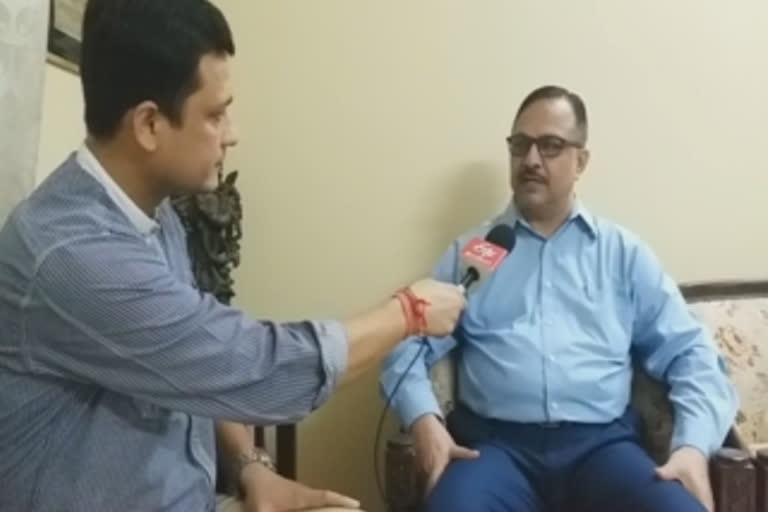New Delhi: The Union Cabinet has recently increased minimum support prices (MSP) for rabi crops during 2022-23. The MSP for wheat was fixed by Rs40 to Rs2,015 per quintal and for mustard seed by Rs400 to Rs5,050 per quintal for the current crop year triggering a mixed reaction among the farmers. However, experts believe that the government has taken steps to make farming more profitable with the new MSP rates.
In an exclusive interview with ETV Bharat, Agriculture Economist and expert Vijay Sardana said that farmers can double the benefits if they switch to pulses and oil seed cultivation instead of cereals.
Explaining further, Sardana said that it is necessary to understand why MSP is given. When there is a shortage of some crops in the country, the government encourages farmers to go for the production of that particular crop. If farmers switches to production of pulses and oilseeds leaving those crops that are in excess, money spent on import can be utilised for farmers, and it would boost the food security situation of the country as well.
READ: Rakesh Tikait rubbishes Center's MSP hike for rabi crops, terms it 'joke'
At present, the MSP of oilseeds is Rs4500 -5000 per quintal but the market price also went up to 8000-9000, which benefitted the farmers, as they do not have to depend on FCI to sell them at MSP. The cost of cultivation of oilseeds is also less as compared to cereals. This will also bring down their expenses.
However, farmers are wary of getting enough buyers for their produce and they are demanding a law to make compulsory purchase at the fixed MSP.
As India imports more than 50 percent of the oil it is needed from foreign countries, if farmers turn to oilseeds, they would get better prices due to the demand in the market. Besides, they would not face procurement issues.
According to Sardana, in a country like India, farmers should adopt the cultivation of oilseeds and pulses from the economic and scientific view as well. The dependency on monsoon will also be less as these crops can be grown even with less irrigation, he added.



